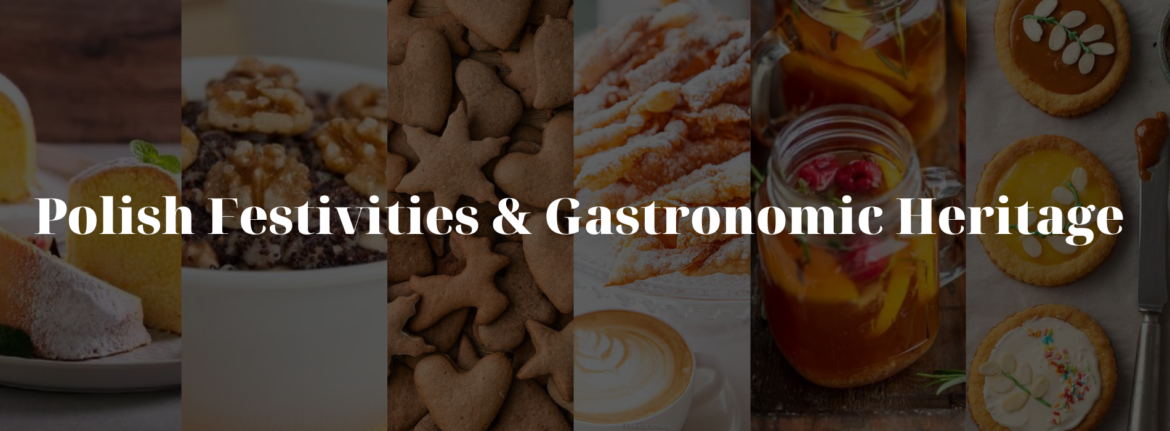Poland, a country rich in cultural heritage and traditions, celebrates numerous holidays throughout the year. These festive occasions are not only marked by rituals and customs but are also accompanied by an array of delectable dishes that hold deep meaning and bring families and communities together.
Easter (Wielkanoc):
Easter is one of the most important holidays in Poland, symbolizing rebirth and new beginnings. The Easter table is filled with a lavish spread, including the iconic żurek (sour rye soup) served with sausage and hard-boiled eggs, as well as mazurek (a rich, sweet pastry), and babka wielkanocna (Easter yeast cake) adorned with powdered sugar.
Christmas (Boże Narodzenie):
Christmas in Poland is a magical time, steeped in age-old traditions and culinary delights. The centerpiece of the Christmas Eve meal, known as Wigilia, is the opłatek, a thin wafer shared among family members as a symbol of unity and forgiveness. The meal itself features a meatless feast with dishes like barszcz (beetroot soup), pierogi (filled dumplings), and kutia (sweet grain pudding).
Andrzejki (St. Andrew’s Day):
Celebrated on November 30th, Andrzejki is a night filled with fortune-telling rituals and games. One of the culinary traditions associated with this holiday is the preparation of pierniki (gingerbread cookies) shaped like keys, horseshoes, or hearts. These cookies are not only delicious but also thought to bring good luck and reveal the future.
All Saints’ Day (Wszystkich Świętych):
On November 1st, Poles honor their departed loved ones by visiting cemeteries and lighting candles on graves. The culinary tradition for this day includes preparing and sharing a special pastry called faworki (angel wings). These delicate, deep-fried pastries sprinkled with powdered sugar are a sweet reminder of the spiritual significance of the holiday.
Corpus Christi (Boże Ciało):
Corpus Christi is a religious holiday celebrated with processions, floral decorations, and a solemn Mass. One of the culinary traditions associated with this holiday is the preparation of the herbata dziewanny (lady’s mantle tea). It is believed to have healing properties and is often enjoyed after the outdoor procession.
Independence Day (Święto Niepodległości):
On November 11th, Poland celebrates its independence. Culinary traditions on this day include preparing traditional Polish dishes like bigos (hunter’s stew) and kiełbasa (sausages) for communal meals and gatherings. The patriotic spirit is also expressed through the colors of the flag in desserts like mazurki (Polish pastry).
Wedding Traditions:
Polish weddings are known for their elaborate celebrations and culinary feasts. Traditional wedding dishes often include żurek (sour rye soup), kiełbasa (sausages), roasted meats, and a variety of desserts such as sernik (cheesecake) and makowiec (poppy seed roll). These delectable offerings symbolize abundance, joy, and the start of a new chapter in the couple’s lives.
These are just a few examples of the numerous holidays and culinary traditions that play a vital role in Polish culture. Through these festive occasions and the accompanying dishes, Poles honor their heritage, strengthen family bonds, and celebrate the joyous moments in life. So, immerse yourself in the flavors and customs of Polish holidays, and experience the warmth and richness of Polish culture through its culinary traditions!
